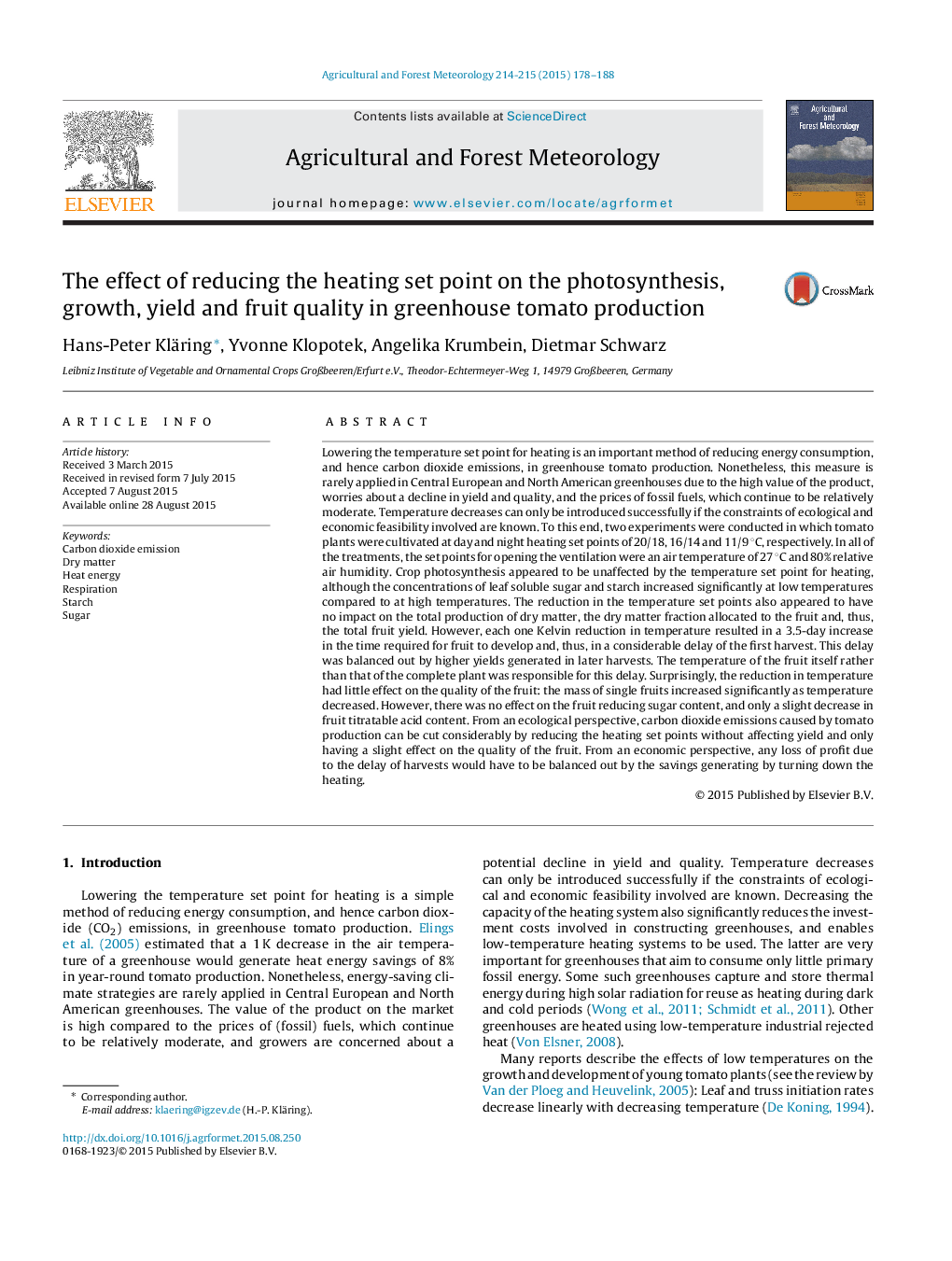| Article ID | Journal | Published Year | Pages | File Type |
|---|---|---|---|---|
| 6537178 | Agricultural and Forest Meteorology | 2015 | 11 Pages |
Abstract
Lowering the temperature set point for heating is an important method of reducing energy consumption, and hence carbon dioxide emissions, in greenhouse tomato production. Nonetheless, this measure is rarely applied in Central European and North American greenhouses due to the high value of the product, worries about a decline in yield and quality, and the prices of fossil fuels, which continue to be relatively moderate. Temperature decreases can only be introduced successfully if the constraints of ecological and economic feasibility involved are known. To this end, two experiments were conducted in which tomato plants were cultivated at day and night heating set points of 20/18, 16/14 and 11/9 °C, respectively. In all of the treatments, the set points for opening the ventilation were an air temperature of 27 °C and 80% relative air humidity. Crop photosynthesis appeared to be unaffected by the temperature set point for heating, although the concentrations of leaf soluble sugar and starch increased significantly at low temperatures compared to at high temperatures. The reduction in the temperature set points also appeared to have no impact on the total production of dry matter, the dry matter fraction allocated to the fruit and, thus, the total fruit yield. However, each one Kelvin reduction in temperature resulted in a 3.5-day increase in the time required for fruit to develop and, thus, in a considerable delay of the first harvest. This delay was balanced out by higher yields generated in later harvests. The temperature of the fruit itself rather than that of the complete plant was responsible for this delay. Surprisingly, the reduction in temperature had little effect on the quality of the fruit: the mass of single fruits increased significantly as temperature decreased. However, there was no effect on the fruit reducing sugar content, and only a slight decrease in fruit titratable acid content. From an ecological perspective, carbon dioxide emissions caused by tomato production can be cut considerably by reducing the heating set points without affecting yield and only having a slight effect on the quality of the fruit. From an economic perspective, any loss of profit due to the delay of harvests would have to be balanced out by the savings generating by turning down the heating.
Related Topics
Physical Sciences and Engineering
Earth and Planetary Sciences
Atmospheric Science
Authors
Hans-Peter Kläring, Yvonne Klopotek, Angelika Krumbein, Dietmar Schwarz,
